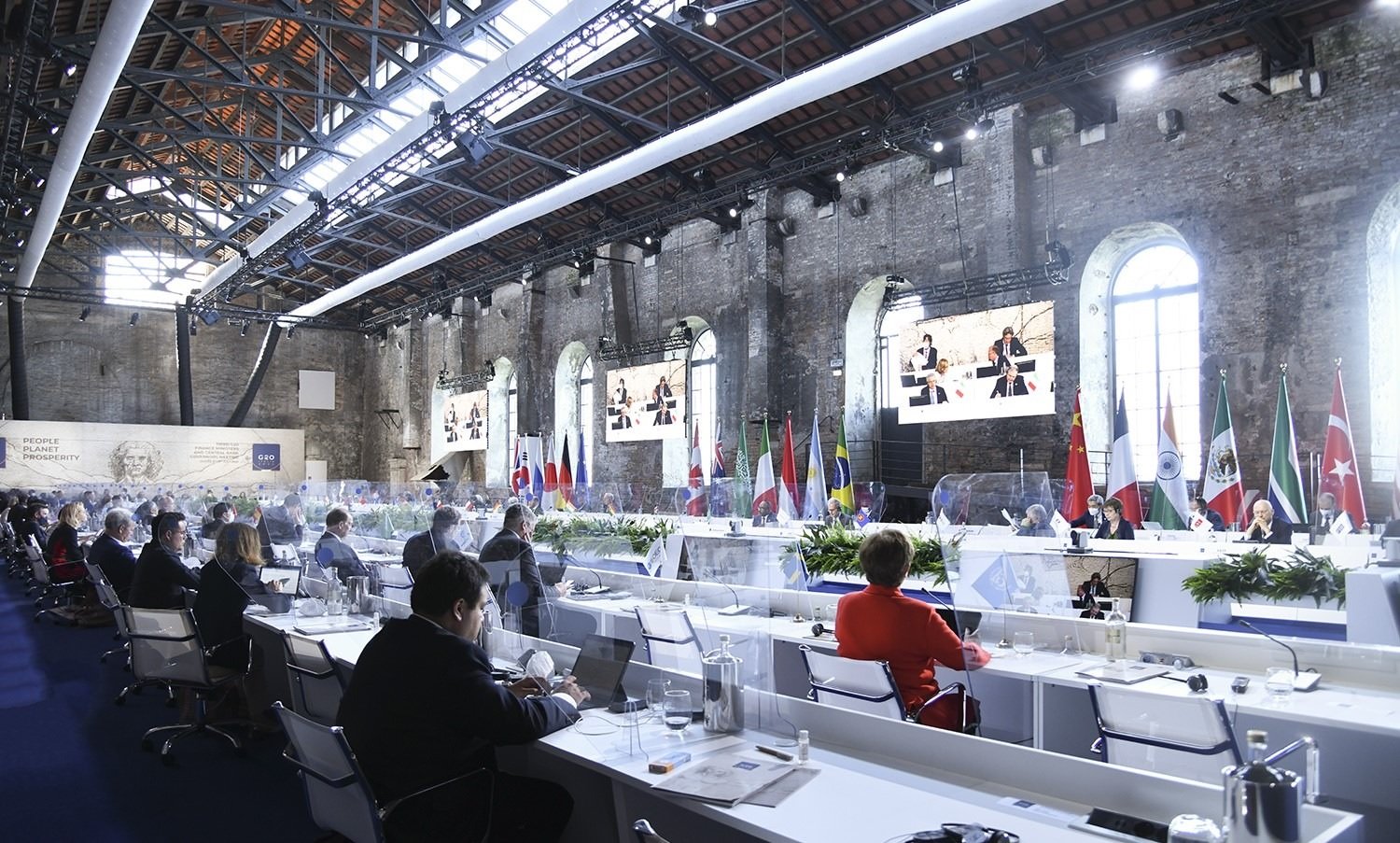Western nations are preparing to stage coordinated walk-outs and other diplomatic snubs to protest against Russia’s invasion of Ukraine at Wednesday’s meeting of G20 finance ministers in Washington, their officials said.
While some in Western capitals argue that Russia’s actions should mean it is excluded from global meetings altogether, that is not a view shared by others in the Group of 20 big economies, including notably China and Indonesia, which is chairing the group this year.
Moscow confirmed on Tuesday Finance Minister Anton Siluanov would lead Russia’s delegation at the talks despite repeated protestations by Western diplomats that they could not go ahead as usual during a war in which thousands of civilians have died in bombardments by Russian troops.
“During and after the meeting we will be certain to send a strong message and we will not be alone in doing so,” a German government source said, accusing Russia of starting a conflict that has also sent world food and energy prices spiraling.
US Treasury Secretary Janet Yellen plans to avoid G20 sessions joined by Russian officials on the sidelines of International Monetary Fund and World Bank meetings. But Yellen will attend an opening session on the Ukraine war regardless of Russian participation, a US Treasury official said.
British finance minister Rishi Sunak also will boycott some G20 sessions if Russian officials attend, a British government source told Reuters.
And a French finance ministry official meanwhile expected some ministers from Group of Seven nations to leave their seats when their Russian peer was due to speak.
‘UNRAVELING’ RISK
The divisions widened by the Ukraine war raise questions over the G20’s future as the world’s premier economic policy forum.
Conceived as a platform for the biggest wealthy and developing economies to cooperate on recovery efforts during the 2008-2009 global financial crisis, the G20 has since broached everything from global tax reform to pandemic debt relief and the fight against climate change, with a patchy record of success.
“The G20 is at risk of unraveling and this week is incredibly important,” said Josh Lipsky, director of the Atlantic Council’s GeoEconomics Center and a former IMF adviser.
Should Western democracies allow the group to wither in favor of the G7 or other groupings, it would cede significant economic influence to China, Lipsky said.
“Russia can align with China and I think that’s a good outcome from Russia’s perspective and actually gives them more influence than they have in a body like the G20,” he said.
Both the French and the German official said there would be no agreed communique at the end of a meeting which had been originally due to discuss the state of the global economy and coordinating vaccine and other pandemic efforts.
Apart from the G7 nations – the United States, Canada, Japan, Britain, France, Germany and Italy – the G20 also incorporates emerging economies including China, India and Brazil that have starkly different views on how the global economy should work.
The Russian invasion of Ukraine and the fact that some G20 nations have chosen not to follow Western sanctions on Russia is only the latest challenge to efforts to construct a global set of rules for trade and finance.
The United States and China have long traded accusations of protectionism, while the fact that world trade is growing more slowly than the global economy as a whole has prompted questions about the future of globalization.
Ahead of the G20 meeting, a top IMF official warned of the risk of a fragmenting global economy.
“One scenario is one where we have divided blocs that are not trading much with each other, that are on different standards, and that would be a disaster for the global economy,” IMF chief economist Pierre-Olivier Gourinchas told reporters.
Separately, the Fund slashed its forecast for global economic growth by nearly a full percentage point, citing Russia’s war in Ukraine, and warning inflation was a “clear and present danger” for many countries.







Click here to change your cookie preferences